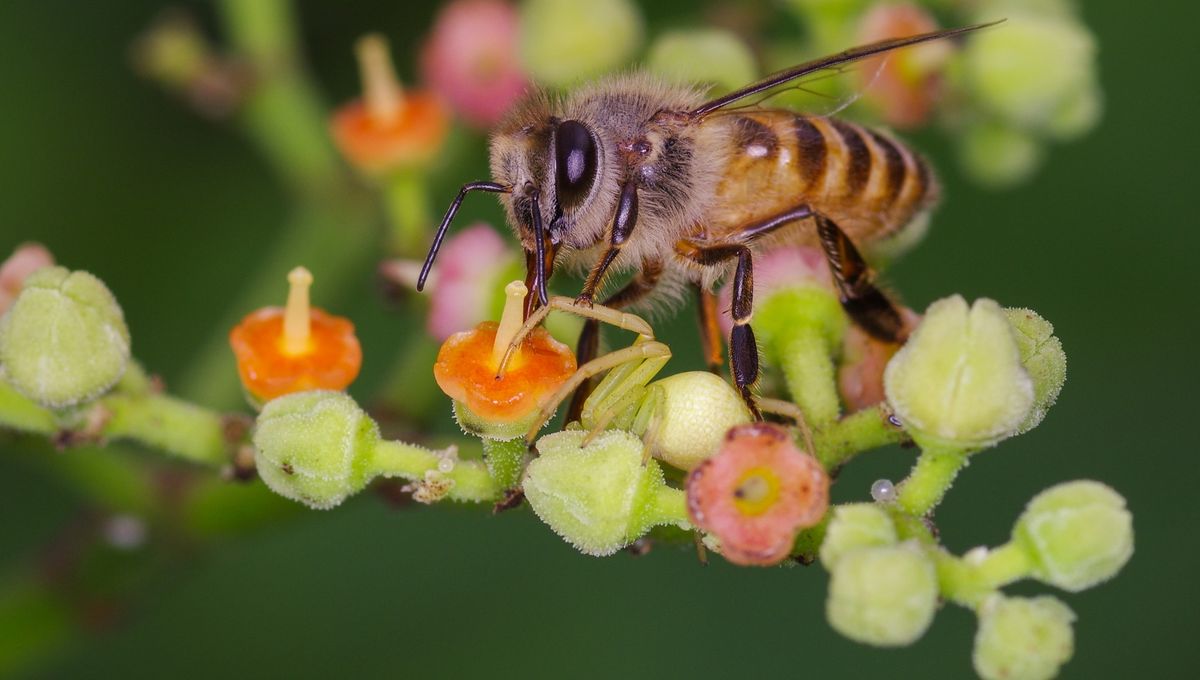
Ever seen a bee slap an ant? We imagine the answer to that is “no”, but if you’re now desperate to know what that looks like, well, today’s your lucky day.
Researchers from the National Institute for Environmental Studies in Japan have discovered that, in the face of unwanted visitors, Japanese honey bees (Apis cerana japonica) can take to slapping them away with pretty spectacular force – and they nabbed some footage of it.
Whilst this behavior had been described before in anecdotes, this study marks the first time that “wing-slapping”, as it’s been dubbed by the researchers, has been captured in such detail.
Using a high-speed camera, the team recorded interactions between Japanese honey bee colonies and Japanese pavement ants (Tetramorium tsushimae) and were able to play the footage back in slow-motion, revealing exactly how the bees slapped the ants away.
“Our results show that the bees slap the ants through direct contact with their wings,” the researchers write. “Specifically, the worker bees executed the slap behavior by first tilting their bodies toward the ants, then flapping their wings while simultaneously turning their bodies.”
Whilst this might be a reasonably effective way of getting rid of the pavement ants – the success rate was around one in two or three attempts – there’s a possibility the success of wing-slapping might be species specific.
The team also observed the behavior in response to Japanese queenless ants (Pristomyrmex punctatus) and Japanese wood ants (Formica japonica) and found the success rate was relatively low for the latter, which they suggest might be because this species is bigger and faster, and thus more difficult to flick away.
Though impressive, wing-slapping is only the latest in a long list of defensive techniques known to be used by Japanese honey bees, some of which frankly make slapping an ant so hard it falls off the ant-equivalent of a cliff seem relatively tame.
We’d argue the most metal of these involves roasting giant hornets alive. Sadly, bees don’t have money so they can’t buy an oven to lob invading hornets in, but what they do have is an affinity for teamwork; they swarm around the giant hornet and vibrate, with the insect inside unable to tolerate the toasty 47.2°C (117°F) temperature that action generates.
So why use wing-slapping against ants when there are other, spicier behaviors to choose from? More research needs to be done, but the researchers suggest that may come down to cost and simplicity.
“Wing-slapping behavior might have evolved among Japanese honey bees as a relatively low-energy, generic defense against the threat of ant incursion,” the team conclude.
The study is published in Ecology.
Source Link: Watch A Japanese Honey Bee Yeet An Ant Off A Ledge